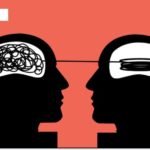Introduction
Depression is a prevalent and serious mental health disorder that affects millions of people worldwide. It goes beyond mere sadness or temporary feelings of being down and can significantly impact a person’s daily life. This article explores the causes, symptoms, and treatment options for depression, aiming to provide a comprehensive understanding of this complex condition.

What is Depression?
Depression, also known as major depressive disorder (MDD), is a mood disorder characterized by persistent feelings of sadness, hopelessness, and a lack of interest or pleasure in activities. It can affect how a person thinks, feels, and handles daily activities, such as sleeping, eating, or working. The World Health Organization (WHO) identifies depression as a leading cause of disability globally, impacting people of all ages, genders, and socioeconomic backgrounds.
Causes of Depression
Depression does not have a single cause; rather, it results from a combination of genetic, biological, environmental, and psychological factors.
- Genetic Factors: Research indicates that depression can run in families. Individuals with a family history of depression are at a higher risk of developing the condition themselves. However, genetic predisposition alone does not determine the onset of depression.
- Biological Factors: Imbalances in brain chemicals, such as neurotransmitters (e.g., serotonin, dopamine, and norepinephrine), play a significant role in depression. These chemicals regulate mood, sleep, and appetite, and their imbalance can contribute to depressive symptoms.
- Environmental Factors: Traumatic or stressful events, such as the loss of a loved one, financial problems, or relationship issues, can trigger depression. Chronic stress, exposure to violence, and childhood abuse or neglect are also associated with an increased risk of depression.
- Psychological Factors: Certain personality traits, such as low self-esteem, pessimism, and a tendency to worry excessively, can make individuals more susceptible to depression. Additionally, people with other mental health conditions, such as anxiety disorders, are at a higher risk of experiencing depression.
Symptoms of Depression
Depressions manifests differently in each individual, but common symptoms include:
- Emotional Symptoms:
- Persistent sadness or feelings of emptiness
- Loss of interest or pleasure in activities once enjoyed
- Feelings of hopelessness, worthlessness, or guilt
- Irritability or frustration, even over small matters

- Physical Symptoms:
- Sleep disturbances (insomnia or excessive sleeping)
- Fatigue or lack of energy
- Cognitive Symptoms:
- Difficulty concentrating, making decisions, or remembering things
- Thoughts of death or suicide
For a diagnosis of depressions, these symptoms must persist for at least two weeks and represent a change from the person’s previous level of functioning.

Types of Depression
- Major Depressive Disorder (MDD): Characterized by severe symptoms that interfere with daily functioning. Episodes of MDD can occur once or multiple times throughout a person’s life.
- Persistent Depressive Disorder (PDD): Also known as dysthymia, PDD involves chronic, less severe symptoms that last for at least two years. Individuals with PDD may experience major depressive episodes during this period.
- Bipolar Disorder: Formerly known as manic-depressive illness, bipolar disorder includes periods of depression and periods of mania or hypomania (elevated mood, increased energy, and activity levels).
- Seasonal Affective Disorder (SAD): A type of depression that occurs seasonally, usually during the fall and winter months when there is less natural sunlight.
- Postpartum Depression: A severe form of depression that occurs after childbirth, affecting the mother’s ability to care for herself and her baby.
Diagnosing Depression
Diagnosing depressions involves a comprehensive evaluation by a healthcare professional, typically a psychiatrist or psychologist. The diagnostic process includes:
- Clinical Interview: The healthcare provider conducts a detailed interview to understand the patient’s symptoms, medical history, and family history of mental health conditions.
- Physical Examination: A physical exam may be conducted to rule out any underlying medical conditions that could be causing depressive symptoms.
- Questionnaires and Rating Scales: Standardized questionnaires and rating scales, such as the Beck Depression Inventory (BDI) and the Hamilton Depression Rating Scale (HDRS), can help assess the severity of depression.
- Diagnostic Criteria: The diagnosis is based on criteria outlined in the Diagnostic and Statistical Manual of Mental Disorders (DSM-5), published by the American Psychiatric Association.
Treatment of Depression
This is a treatable condition, and various treatment options are available. The choice of treatment depends on the severity of symptoms, the individual’s preferences, and any underlying medical conditions.
- Psychotherapy:
- Cognitive Behavioral Therapy (CBT): CBT is a widely used form of therapy that helps individuals identify and change negative thought patterns and behaviors contributing to depression.
- Interpersonal Therapy (IPT): IPT focuses on improving interpersonal relationships and resolving conflicts that may be contributing to depressive symptoms.
- Psychodynamic Therapy: This therapy explores unconscious patterns and unresolved conflicts from the past that may be affecting the individual’s current mental state.
- Supportive Therapy: Provides emotional support and practical advice to help individuals cope with stress and improve their quality of life.
- Medication:
- Antidepressants: Medications such as selective serotonin reuptake inhibitors (SSRIs), serotonin-norepinephrine reuptake inhibitors (SNRIs), and tricyclic antidepressants (TCAs) can help alleviate depressive symptoms by balancing brain chemicals.
- Mood Stabilizers: Often used in bipolar disorder to manage mood swings.
- Antipsychotics: May be prescribed in severe cases or when depression is accompanied by psychotic symptoms.
- Lifestyle Changes:
- Regular Exercise: Physical activity can boost mood by increasing the production of endorphins and reducing stress.
- Sleep Hygiene: Establishing a regular sleep routine and creating a restful sleep environment can improve sleep quality and reduce depressive symptoms.
- Stress Management: Techniques such as mindfulness meditation, yoga, and relaxation exercises can help manage stress and improve emotional well-being.
- Alternative and Complementary Therapies:
- Acupuncture: Some studies suggest that acupuncture can help reduce depressive symptoms.
- Herbal Supplements: St. John’s wort and other herbal supplements are sometimes used to treat mild depression, but their efficacy and safety should be discussed with a healthcare provider.
- Electroconvulsive Therapy (ECT): ECT is a medical treatment that involves electrically induced seizures to treat severe depression, especially when other treatments have failed.
- Transcranial Magnetic Stimulation (TMS): TMS uses magnetic fields to stimulate nerve cells in the brain and is used for treatment-resistant depression.
Coping with Depression
Living with depressions can be challenging, but there are strategies to help manage symptoms and improve quality of life:
- Build a Support Network: Connect with family, friends, or support groups to share experiences and receive emotional support.
- Set Realistic Goals: Break tasks into smaller, manageable steps and set achievable goals.
- Stay Active: Engage in activities that bring joy and a sense of accomplishment.
- Practice Self-Compassion: Be kind to yourself and avoid self-criticism.
- Avoid Alcohol and Drugs: Substance use can worsen depressive symptoms and interfere with treatment.
- Educate Yourself: Learn about depressions to better understand the condition and the available treatment options.
The Importance of Seeking Help
This is a serious condition that requires professional treatment. If you or someone you know is experiencing symptoms of depression, it is crucial to seek help from a healthcare provider. Early intervention can improve outcomes and reduce the risk of complications, such as suicide.
Conclusion
This is a complex and multifaceted mental health disorder that affects millions of people worldwide. Understanding its causes, symptoms, and treatment options is essential for managing the condition effectively. With appropriate treatment and support, individuals with depression can lead fulfilling lives and achieve a better quality of life. If you or someone you know is struggling with depressions, do not hesitate to reach out for help.


